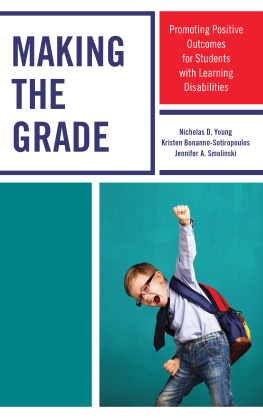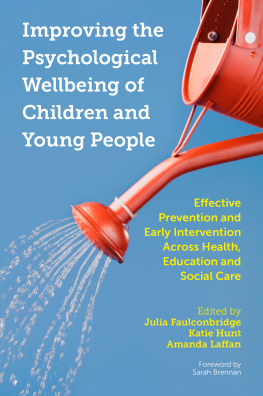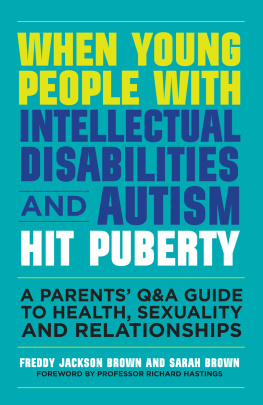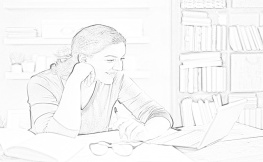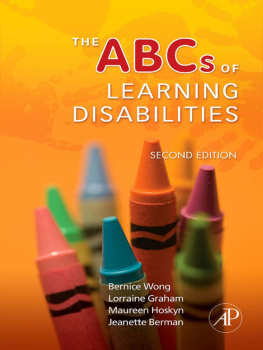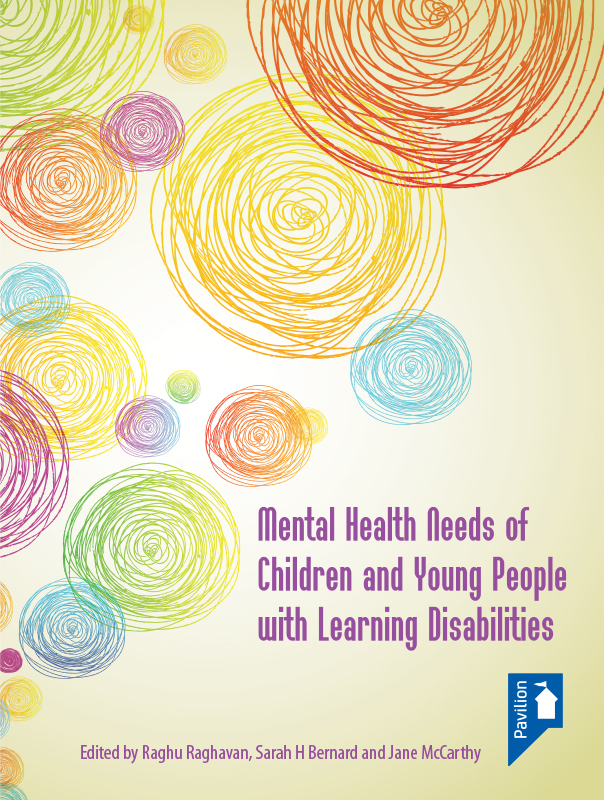
Pavilion Publishing and Media
The authors have asserted their rights in accordance with the Copyright, Designs and Patents Act (1988) to be identified as the authors of this work.
Published by:
Pavilion Publishing and Media
Rayford House,
School Road,
Hove BN3 5HX
Tel: 01273 623222
Fax: 01273 625526
Email: info@pavpub.com
First published 2010. Reprinted 2012
All rights reserved. No part of this publication may be reproduced, stored in a retrieval system, or transmitted in any form or by any means, electronic, mechanical, photocopying, recording or otherwise, without prior permission in writing of the publisher and the copyright owners.
A catalogue record for this book is available from the British Library.
ISBN: 978-1-908993-79-3
Pavilion is the leading training and development provider and publisher in the health, social care and allied fields, providing a range of innovative training solutions underpinned by sound research and professional values. We aim to put our customers first, through excellent customer service and value.
Editors: Raghu Raghavan, Sarah H Bernard and Jane McCarthy
Editor: Catherine Jones, Pavilion
Cover design: Emma Garbutt, Pavilion
Page layout and typesetting: Katherine Jones, Pavilion
Printing: Ashford Press
Contents
Sarah H Bernard
Sarah H Bernard, Muthukumar Kannabiran and Neil Philips
Jane McCarthy
Chantal Homan
Suzannah Gratton
Alison Dunkerley
Raghu Raghavan
Raghu Raghavan and Nicole Pawson
Jill Davies and Kate Baxter
Richard Barker
Lisa Rippon
We wish to thank all the children and young people with learning disabilities, their families, carers and professionals who have helped us to conceptualise the theme of this book through our practice and research. We wish to acknowledge the help and support of all the chapter contributors to this book. The help of Hugh Firth, consultant clinical psychologist, Northgate Tyne and Wear Trust, for the formulation of the psychological interventions chapter is greatly acknowledged. Our thanks also go to Dr David Sims and Kate Dutton from Bradford District Care Trust for their contribution on family carers perspectives. We are grateful to Jan Alcoe and Sanaz Nazemi from Pavilion Publishing for commissioning this book and for their support and patience.
Sarah H Bernard MB ChB, MD, FRCpsych, DRCOG, Consultant Psychiatrist, South London and Maudsley NHS Foundation Trust, National and Specialist CAMHS Learning Disability Team Mental, The Michael Rutter Centre, London
Jane McCarthy MB, ChB, MD, MRCGP, FRCPsych, Consultant Psychiatrist, South London and Maudsley NHS Foundation Trust, Mental Health in Learning Disabilities, York Clinic, Guys Hospital, London
Raghu Raghavan BA, MSc, RNLD, PGCE, PhD, Reader in Disability and Mental Health, School of Health Community and Education, Northumbria University, Newcastle upon Tyne
Richard Barker BA (Hons), MA, PhD, CQSW, CASS, PGCE, RSW, Professor of Child Welfare, School of Health Community and Education Studies, Northumbria University, Newcastle upon Tyne
Kate Baxter BA, MA, MBBS, MRCPsych, Locum Consultant Psychiatrist, Harper House Childrens Service, CAMHS, Hertfordshire Partnership NHS Foundation Trust
Jill Davies BSc, RNLD, Research Programme Manager, Foundations for People with Learning Disabilities, 9th Floor Sea Containers House, 20 Upper Ground, London
Alison Dunkerley MB, ChB, MRCPsych, PGCTLCP, Bolton CAMHS, Royal Bolton Hospital NHS Foundation Trust, Bolton
Suzannah Gratton BSc (Hons), MSc, PsychD, Chartered Clinical Psychologist, South London and Maudsley NHS Foundation Trust, National and Specialist CAMHS Learning Disability Team, Michael Rutter Centre, Maudsley Hospital, Denmark Hill, London
Chantal Homan Clinical Nurse Specialist (Learning Disabilities and Mental Health), Southampton City Primary Care Trust, Southampton
Muthukumar Kannabiran MBBS, DPM, MRCPsych, Consultant Psychiatrist, Kent and Medway NHS and Social Care Partnership Trust, Sittingbourne, Kent
Nicole Pawson PhD Senior Research Fellow, School of Health Studies, University of Bradford, Bradford
Neil Phillips ClinPsyD, MSc, PGDip, BSc (Hons), Clinical Psychologist, Worcestershire PCT, Worcestershire
Lisa Rippon Consultant Psychiatrist, Prudoe Hospital, Northgate Tyne and Wear NHS Trust, Morpeth, Northumberland
It gives me great pleasure to provide the foreword for this book. The last decade has seen major changes and developments in provision for children with learning disabilities and their families. The Aiming High for Disabled Children programme has raised expectations in terms of life chances, educational outcomes and social inclusion, and parents are now seen as key and expert partners in their childs development. But we also know that provision can be variable and as this book shows we also know that concerns about the mental health of all children are growing.
In the UK there are approximately a third of a million children with a learning disability. Of these, 40% are likely to develop mental health problems. For many families, the mental health problems associated with challenging behaviour and sleep and eating problems will constitute a major challenge. As one mother notes:
Friendships and family contacts dwindle when your child behaves differently. You are so tired you can hardly cope. So often services just dismiss mental health problems as part of the learning disability. They are not and if they are not addressed at home, at school and in the community, the whole family is affected.
Children and young people with a learning disability and an associated mental health problem (and their families and those working with them in education and other settings) will require proactive, positive and well integrated support at every level. We know that many families with a child with a learning disability experience multiple challenges in ensuring that their child develops the resilience and emotional and physical well-being essential for good outcomes in education and later life.
A study from Contact a Family (2010) noted that, Many families with disabled children are in dire financial straits, having to cope with a harsh combination of extra living costs, the difficulty of holding down a job and the challenges of caring day to day.
For these families, there are often additional barriers due to lack of information, poor access to health care and in some cases, negative reactions and stigma about their childs disability and behaviours. As Lord Darzi (2008) commented:
People live out their lives in their own homes and communities. It is here that their health and well-being is shaped by the circumstances in which they find themselves and it is here that we need to deliver more vibrant, family-focused services, focusing more on emotional as well as health outcomes and life chances rather than crisis intervention.
This book offers the Darzi vision of integrated, informed and evidence- based identification, management and interventions when a child or young person has the dual diagnosis of learning disability and mental health problems. It is vital that parents, teachers, childcare and other workers and professionals have high expectations and receive early information, advice and support appropriate to the child or young persons developmental and chronological ages. If children and young people with learning disabilities are six times more likely to have a psychiatric diagnosis compared to their non-disabled peers, then a wide range of services working with children with disabilities or special educational needs will need an enhanced understanding of the interface between mental health and learning disability. As a parent at the Aiming High for Disabled Children consultation conference said:
Next page

